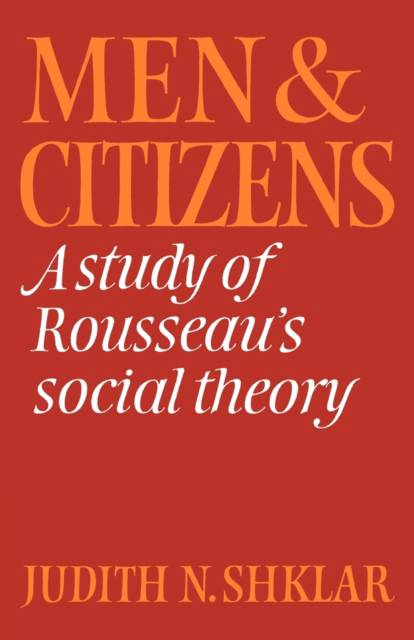
Je cadeautjes zeker op tijd in huis hebben voor de feestdagen? Kom langs in onze winkels en vind het perfecte geschenk!
- Afhalen na 1 uur in een winkel met voorraad
- Gratis thuislevering in België vanaf € 30
- Ruim aanbod met 7 miljoen producten
Je cadeautjes zeker op tijd in huis hebben voor de feestdagen? Kom langs in onze winkels en vind het perfecte geschenk!
- Afhalen na 1 uur in een winkel met voorraad
- Gratis thuislevering in België vanaf € 30
- Ruim aanbod met 7 miljoen producten
Zoeken
Omschrijving
This book, first published in 1969, is widely regarded as one of the best studies of Rousseau's thought in any language. In it, Professor Shklar examines Rousseau's central concern: given that modern civilisation is intolerable and a return to the state of nature impossible, how is man to arrange his existence in society? Shklar organises the study around Rousseau's two conceptions of Utopia: the Spartan city and the autonomous family group. She emphasises the importance for Rousseau of psychological factors and shows how, when mediated through his images of authority and use of metaphor, they bring him to his notorious view that man is 'everywhere in chains'. In Shklar's view, Rousseau's conclusion is almost equally pessimistic: the chances are very remote that we can overcome the psychological obstacles to become both men and citizens.
Specificaties
Betrokkenen
- Auteur(s):
- Uitgeverij:
Inhoud
- Aantal bladzijden:
- 268
- Taal:
- Engels
- Reeks:
Eigenschappen
- Productcode (EAN):
- 9780521316408
- Verschijningsdatum:
- 18/04/1985
- Uitvoering:
- Paperback
- Formaat:
- Trade paperback (VS)
- Afmetingen:
- 140 mm x 216 mm
- Gewicht:
- 344 g

Alleen bij Standaard Boekhandel
+ 92 punten op je klantenkaart van Standaard Boekhandel
Beoordelingen
We publiceren alleen reviews die voldoen aan de voorwaarden voor reviews. Bekijk onze voorwaarden voor reviews.









